Can Boneless Wings Contain Bones?
Does “boneless” wings mean it is void of bones?
I take each and every client case personally, and while some impact me more than others, the case against REKM, L.L.C. is one that will perplex me the most. I fought for my client’s health, medical bill reimbursement, and for the principal fact that if a food says it is “boneless,” it should not contain bones.
If you eat at restaurants in America, you should know about this case. It will help you protect yourself and your family from the devastation my client has suffered.
IN THE NEWS
-
Ohio Capital Journal
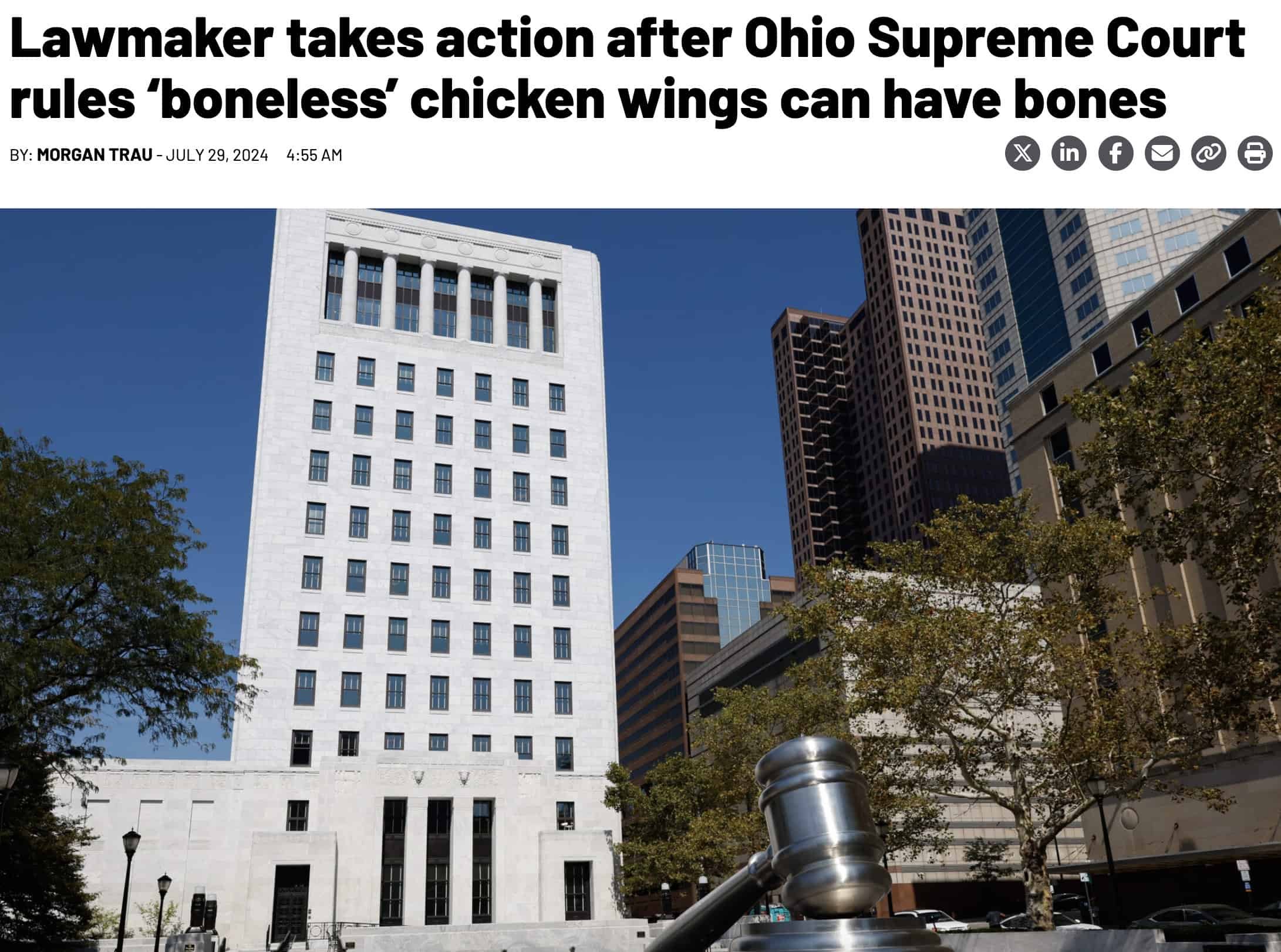
-
Associated Press
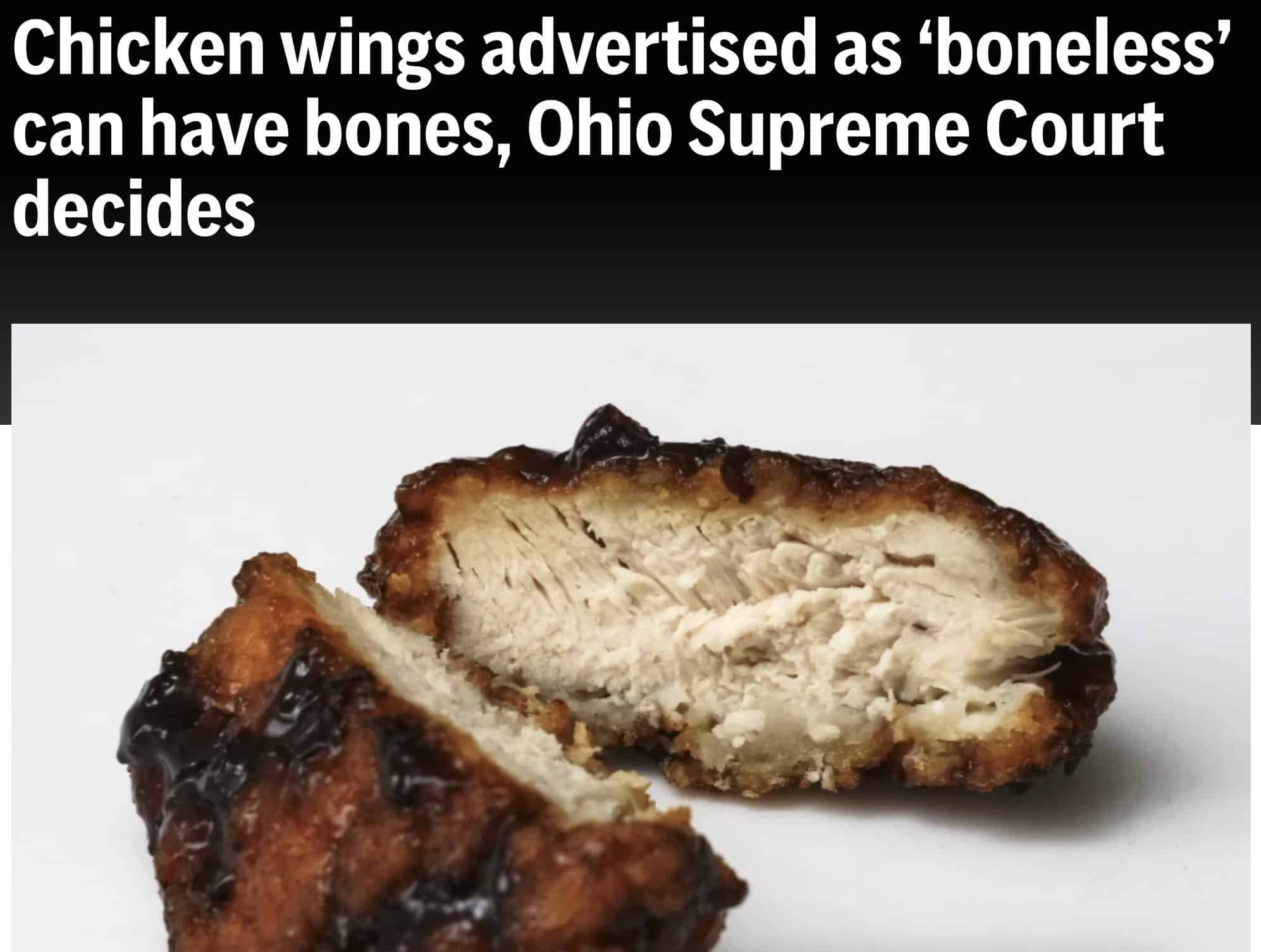
-
WYMT News

-
Cincinnati Enquirer
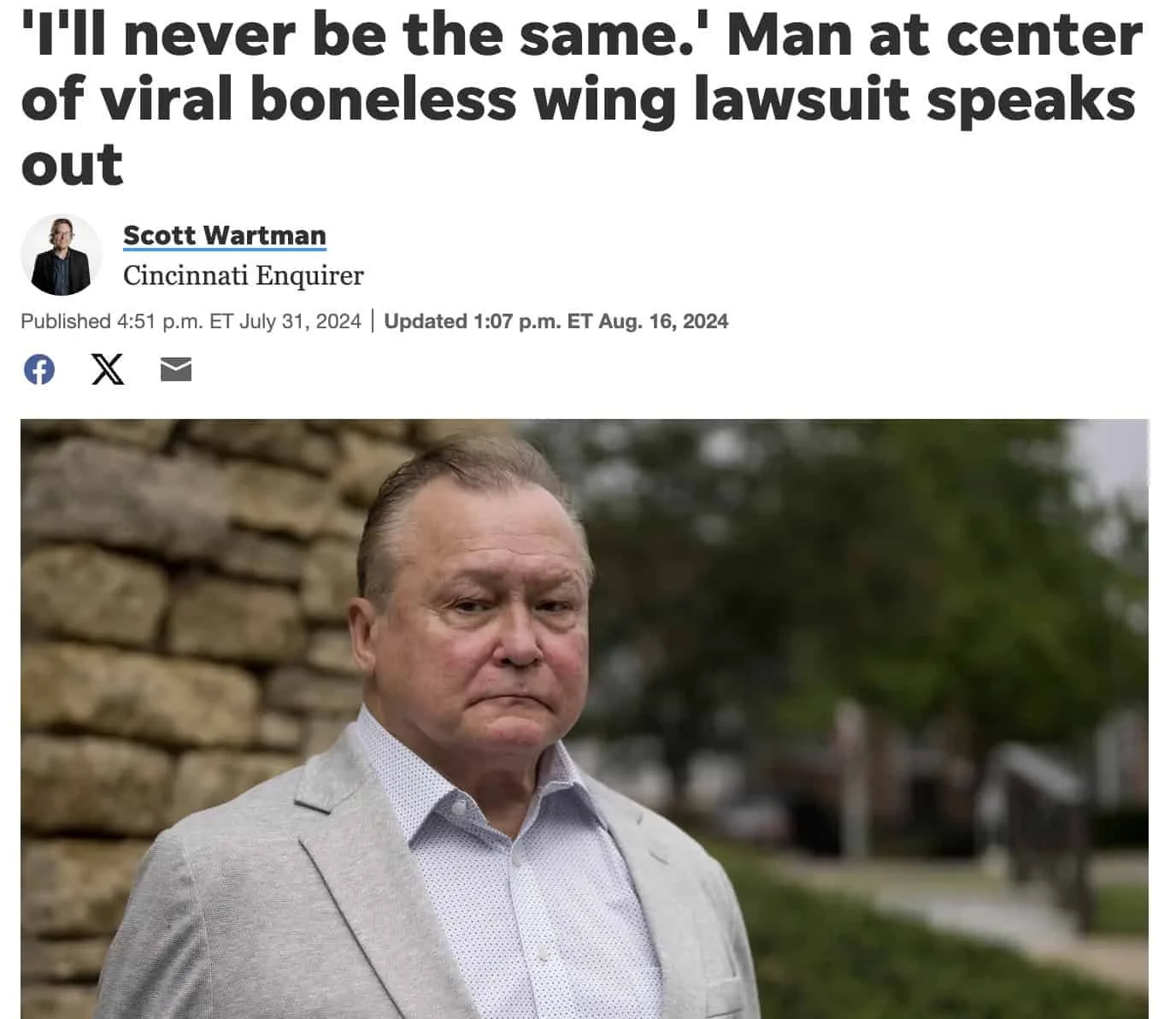
-
Columbus Dispatch
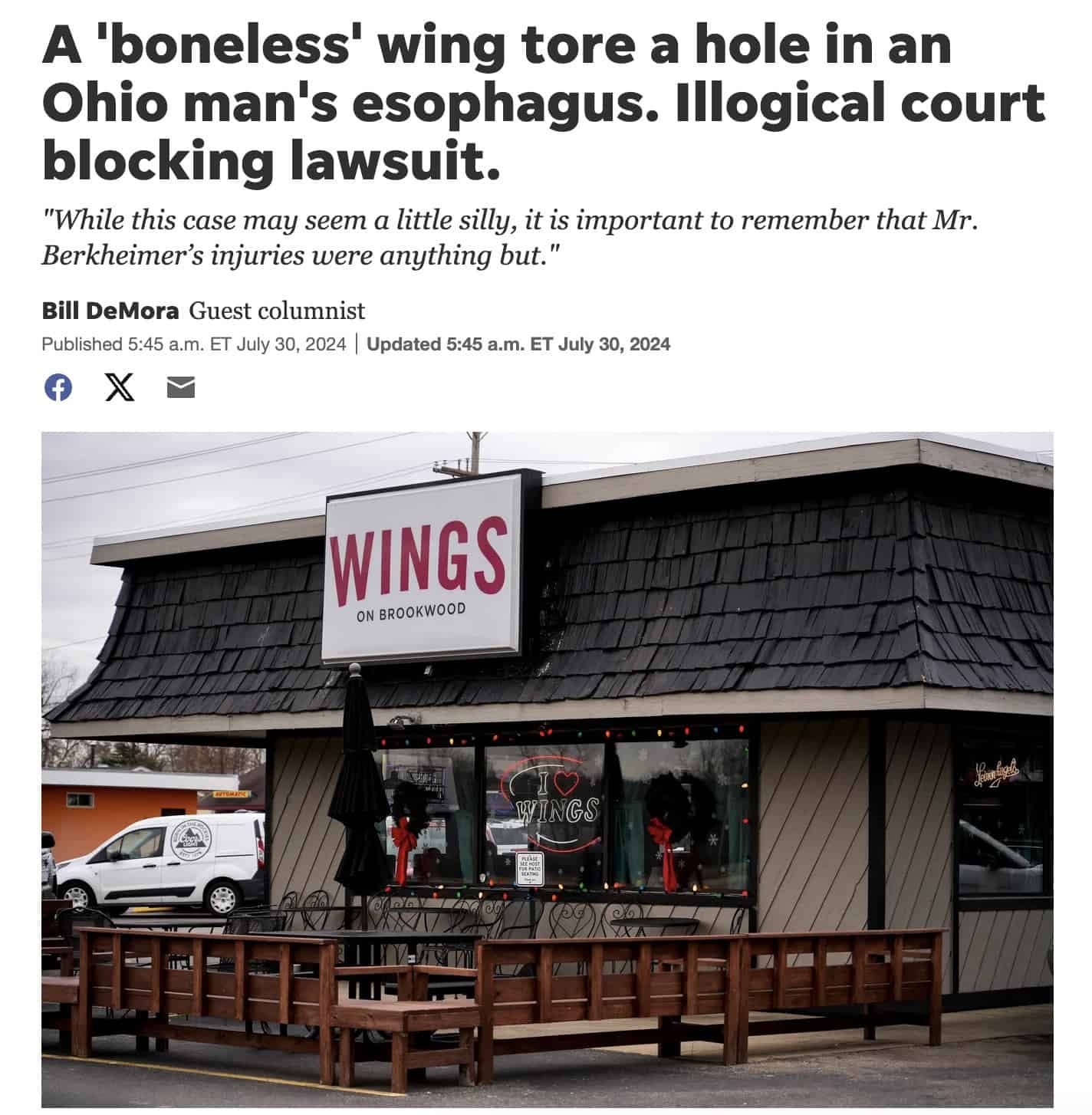
-
NBC 15 News
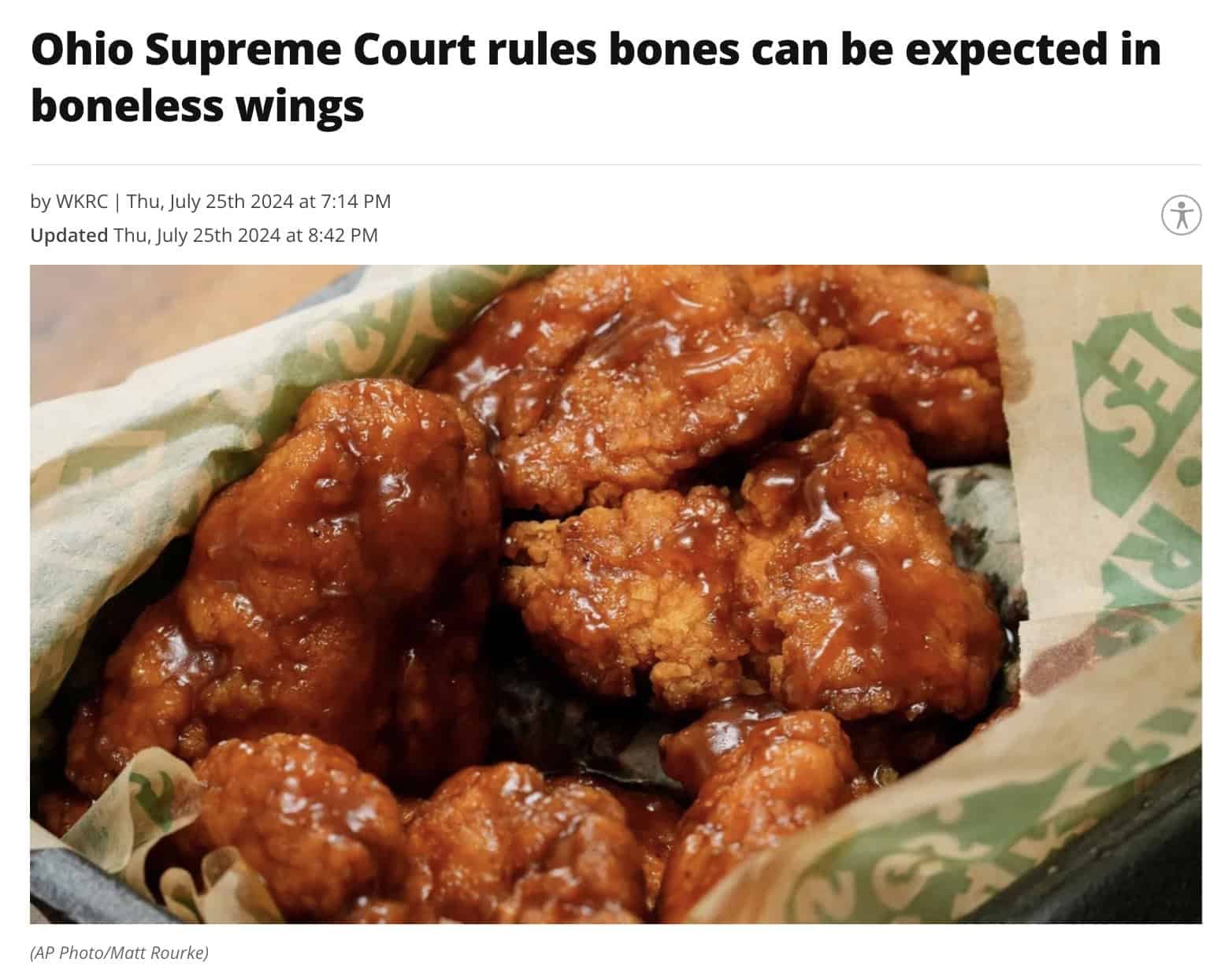
-
Jackson Post
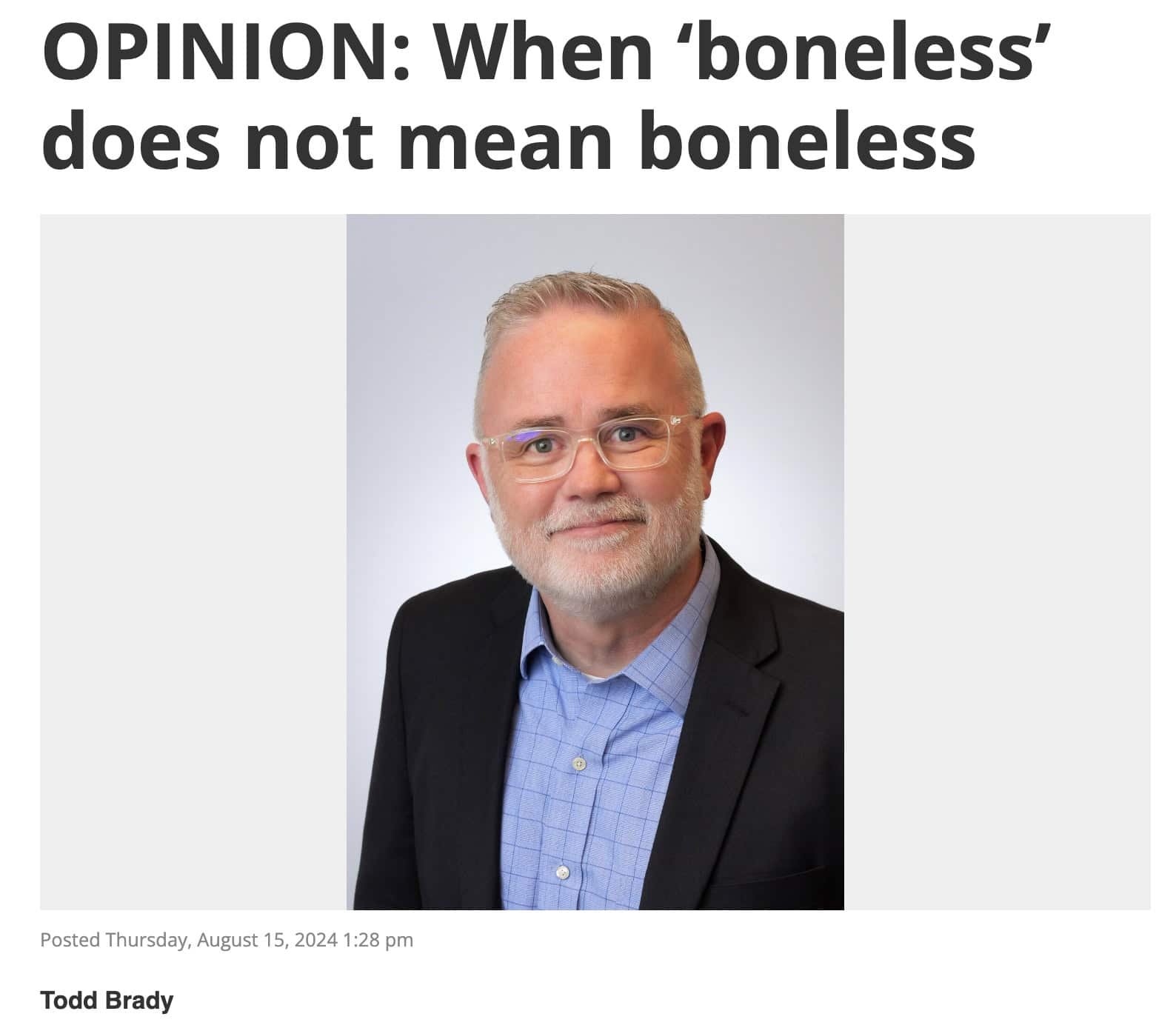
-
Holland and Knight Blog
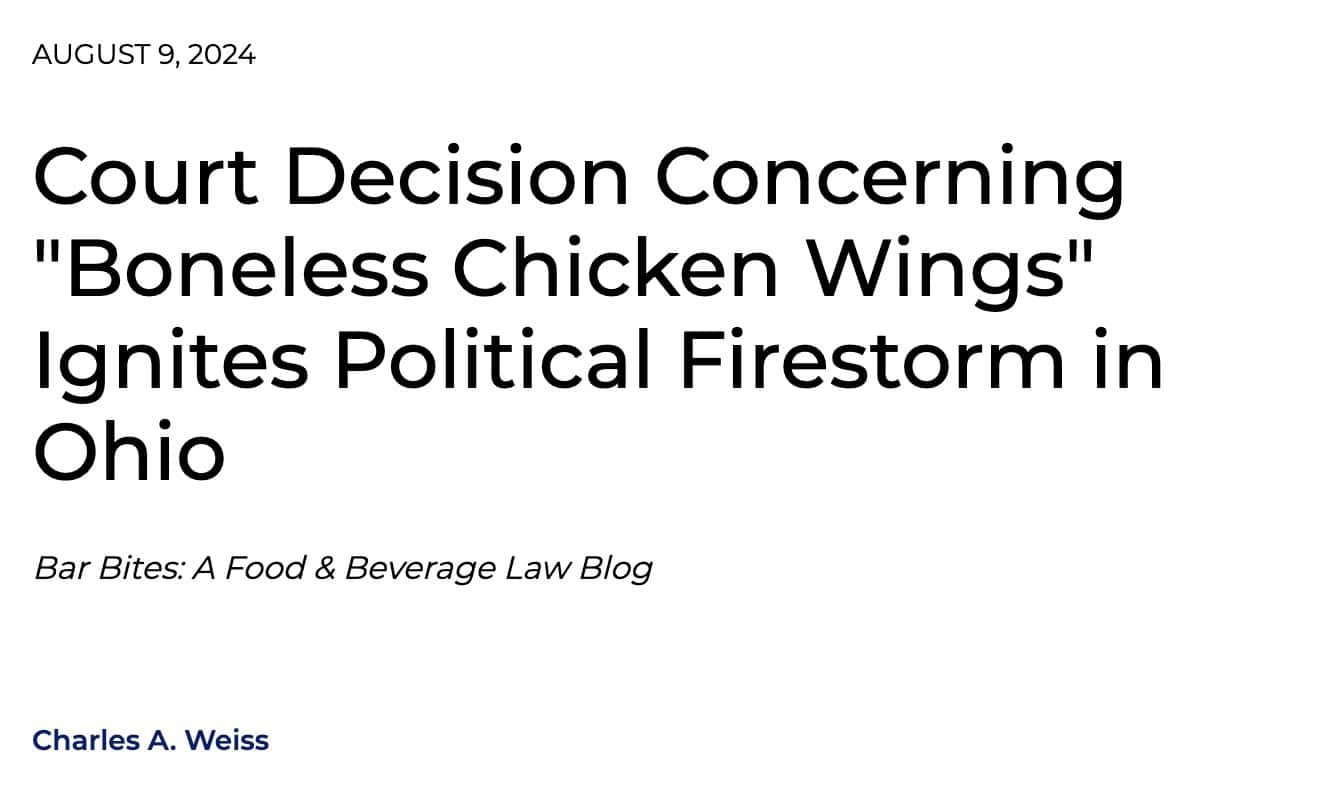
-
Governing.com

-
NPR News
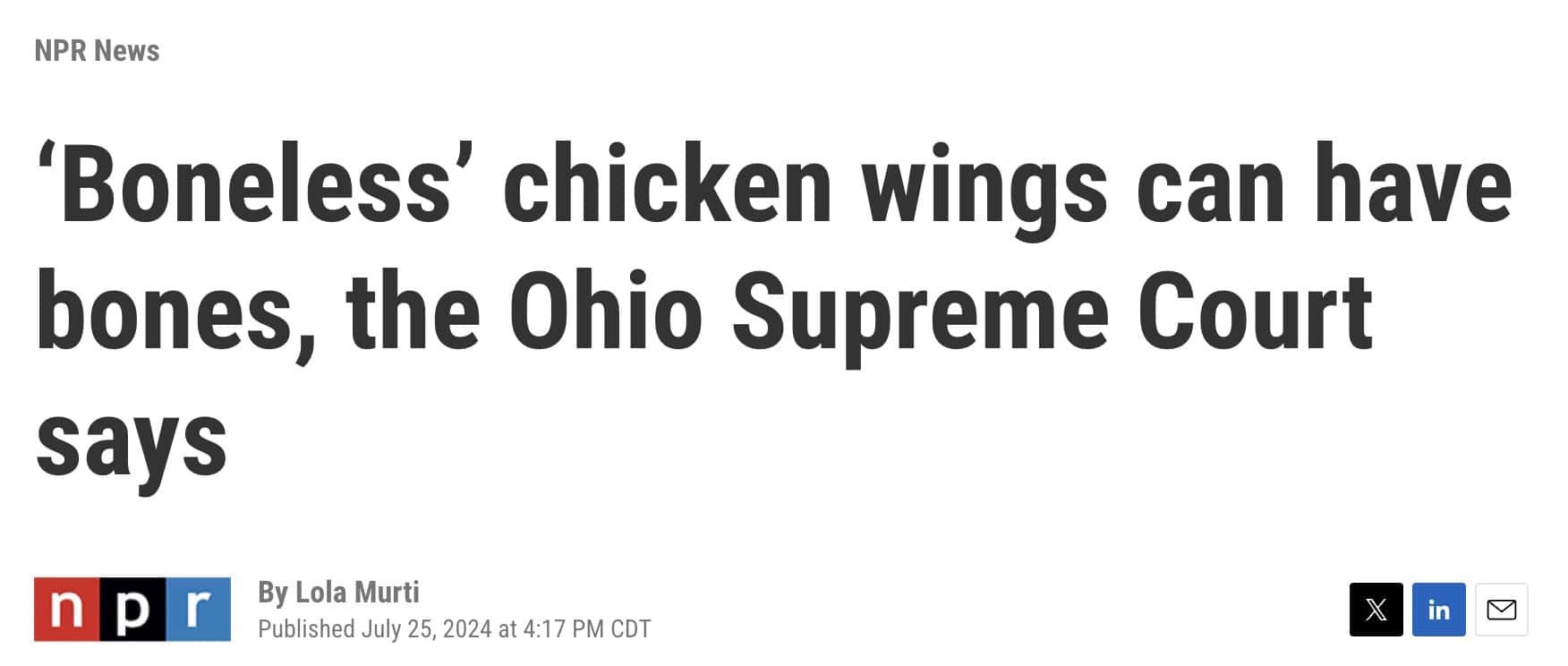
-
Yahoo Finance
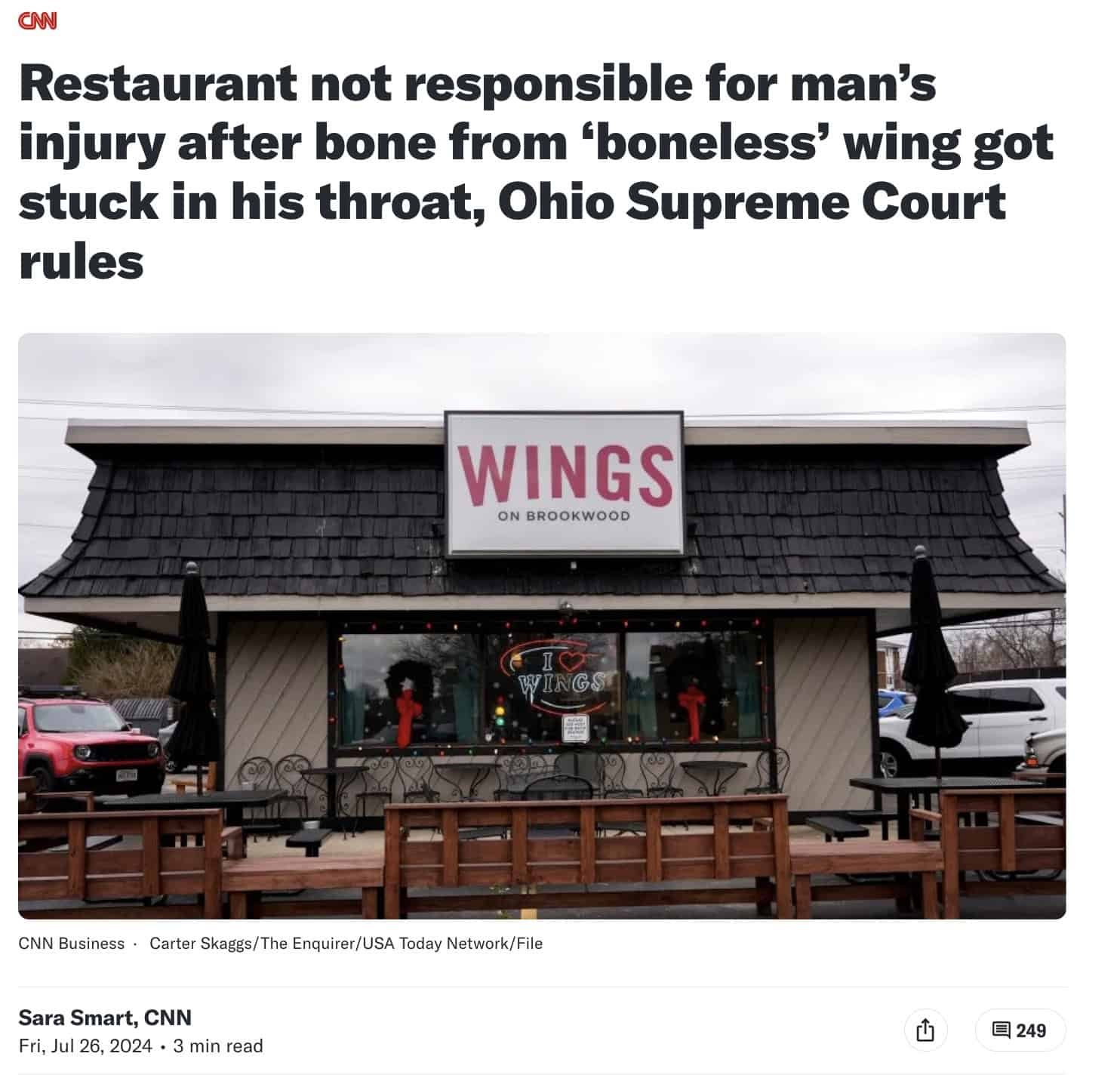
TIMELINE & SUMMARY of the “Boneless” Chicken Wing Case
-
On March 1, 2017, we filed a lawsuit in the Butler County, Ohio, Court of Common Pleas. We named REKM, LLC, d/b/a Wings on Brookwood, Gordon Food Service, Wayne Farms, and Mr. Berkheimer’s medical insurance carrier as defendants. The lawsuit alleged that REKM, Gordon, and Wayne were responsible for his physical injuries and the medical insurance carrier may have a subrogation interest in the matter.
During late Summer and early fall 2017, the Defendants filed a Motion for Judgment on the Pleadings under Civil Rule 12(C). Those motions asked the trial court judge to dismiss the case, using many of the same arguments those defendants advanced throughout the matter. On November 6, 2017, the trial court granted the motion. We then appealed.
-
In late 2017 and early 2018, we brief the case before the 12 th District Court of Appeals, arguing that it was too early in the case for the trial court to make the determination it did. The briefing was completed and on May 14, 2018, the 12 th District heard Oral Argument on the matter.
On July 9, 2018, the 12 th District rendered a unanimous opinion in our favor, that returned the case to the Trial Court. In that opinion, the 12 th District held that the law “requires the court to consider the specific facts of the case in determining whether a consumer can reasonably anticipate and guard against eating an injurious object in a meat dish. That the object was a bone natural to the product is an important factor but is only one factor in that analysis.” Berkheimer I at ¶21. The case then went back to the Trial Court to conduct discovery.
-
Once the case was returned to Butler County, we began discovery. Discovery is the process of exchanging documents and taking witness testimony about the incident. During the discovery process, we learned that the chicken that injured Mr. Berkheimer was sold as “Boneless” when it left Wayne Farms and went to Gordon Foods. Gordon Foods then sold it as “Boneless” to REKM. When REKM sent the chicken from its kitchen to its dining room, it similarly sold the chicken as “Boneless.” However, at none of those three levels of commerce did any seller provide a warning that the supposedly “Boneless” chicken may contain bones. We further learned that in the 90 days prior to Mr. Berkheimer’s injury, Gordon Foods had received multiple complaints about customers finding bones in the boneless chicken, but never issued a recall nor did it send a mass warning notice to its customers.
At the conclusion of discovery, the defendants asked the Trial Court judge to rule, as a matter of law, that no reasonable jury could find for Mr. Berkheimer. We argued that a jury should decide whether the defendants were liable for Mr. Berkheimer’s injury. The Trial Court judge then issued an opinion, almost identical to the November 2017 opinion, that Mr. Berkheimer’s case could not proceed to a jury.
-
Presented with the specific facts the 12th District requested in Berkheimer I, the 12th District then evaluated whether the Trial Court was correct, as a matter of law, in denying Mr. Berkheimer a jury trial. In its opinion, the Appellate Court recognized that a court must “consider the specific facts of the case before concluding whether a consumer can reasonably anticipate and guard against eating an injurious object in a meat dish.”
Berkheimer II, at ¶25. Under those facts, the Appellate Court concluded that “a reasonable person could have anticipated and guarded against a similarly large-sized bone concealed in a bite-size piece of chicken” and that “a defendant is not an insurer, and only has a duty to eliminate or remove during the preparation of the food he serves harmful substances that the consumer would not ordinarily anticipate or guard against.”
Berkheimer II, at ¶¶ 29-30. Again, Mr. Berkheimer was denied his right to a jury trial.
-
After the January 17, 2023 ruling by the 12th District Court of Appeals, we asked the Supreme Court of Ohio to take the case. On May 31, 2023, the Supreme Court of Ohio accepted the appeal.
The Supreme Court accepts very few cases and getting the case in front of the justices was a significant accomplishment.
On December 12, 2023, the case was argued before the Supreme Court. A video of that argument can be found here. We argued that under Ohio law, a jury, not a judge, should decide whether the defendants were responsible for Mr. Berkheimer’s injuries.
The majority of the Court, in a 4-3 opinion, ruled that the defendants were not responsible because “A diner reading “boneless wings” on a menu would no more believe that the restaurant was warranting the absence of bones in the items than believe that the items were made from chicken wings, just as a person eating “chicken fingers” would know that he had not been served fingers. The food item’s label on the menu described a cooking style; it was not a guarantee.” Berkheimer III, at ¶23. We disagree with both that analysis and conclusion.
In a spirited dissent, Justice Donnelly called the Majority opinion “Jabberwocky.” Berkheimer III at ¶36.
We believe the dissent correctly wrote that the ruling was “another nail in the coffin of the American jury system.” Berkheimer III at ¶ 27.
Mr. Berkheimer suffered catastrophic injuries from a bone contained in a menu item unambiguously advertised as “boneless” at every level of commerce. All we asked is that a jury be able to make a commonsense determination as to whether he should be able to recover for his injuries. But the Court’s majority ruled otherwise, simultaneously denying him that opportunity, and rendering the word “boneless” completely meaningless.
-
On August 5, 2024, we asked the Supreme Court of Ohio to reconsider its decision. A copy of our Motion can be found here.
We will provide updates to this site based on the outcome of our Motion.

